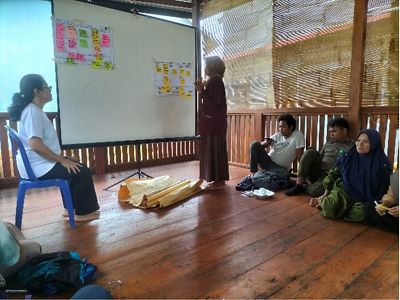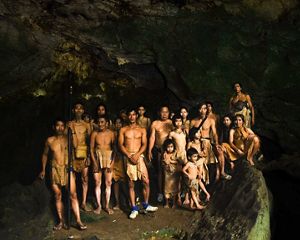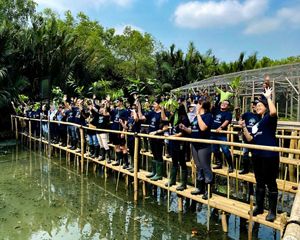
The 1.39 million hectare Wakatobi National Park (TNW) in Southeast Sulawesi’s Wakatobi Regency was established under national government decrees in 1996 and 2002. A decree in 2000 expanded the park to 1.397 million hectares.
The national marine park is dominated by the four large islands of Wangi-Wangi, Kaledupa, Pulau Tomia and Binongko. The lives of the Islands’ inhabitants are heavily dependent on the national park’s marine and coastal resources.
Read: Fishery Data Collection for Fresh Fish Tomorrow!
In recognition of this dependency, a number of activities are in place to involve the local communities in managing the park sustainably. Spearheading these efforts are the TNW Head Office, the regency government and various environmental organizations. Their efforts to increase local awareness, increase the capacity of community groups and strengthen traditional institutions represent strategic breakthroughs for community-based conservation programs in the region.

Yayasan Konservasi Alam Nusantara’s (YKAN) support focuses on active community involvement as part of an integrated TNW management strategy. YKAN’s collaboration with coastal communities aims at building the management capacity of local organizations, particularly regarding enhancing livelihoods through sustainable principles. Its activities with the communities include developing program plans for implementing alternative environmentally friendly livelihoods.
YKAN facilitated a village participatory mapping and decision-making process for managing local natural resources and developing community activity plans. This facilitation process, known as SIGAP (Inspiring Citizen Led Initiatives for Change), was conducted by YKAN in partnership with the villages of Kulati, Tampara, Waduri, South Balasuna, Balasuna, Dete and Kollo Soha.
As a result of the YKAN-community partnership, four community groups are now implementing ecotourism activities, and several medium, small and medium enterprises are up and running. YKAN continues to assist these groups and enterprises by delivering business management training. This training helps communities implement work plans that meet time and cost requirements and provide economic and ecological benefits.
Hopefully, good management skills will lead to TNW becoming a national and international tourist destination that promotes the well-being of nature and society. This goal can only be achieved if the community plays the leading role. Building public awareness of the importance of protecting the environment is central to successfully implementing sustainable natural resource management.




